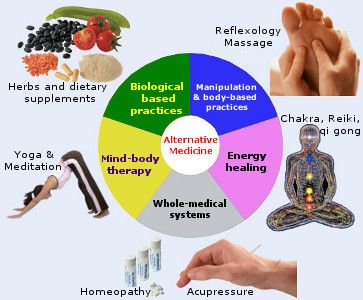In recent years, the interest in holistic healing and alternative medicine has seen a surge among individuals seeking natural and comprehensive approaches to healthcare. People are increasingly seeking alternatives to conventional medical treatments, looking for more personalized, integrated, and natural ways to address their health concerns.
Understanding Holistic Healing
Holistic healing, also known as alternative or complementary medicine, takes a comprehensive approach to address physical, mental, emotional, and spiritual aspects of an individual’s well-being. Unlike conventional medicine, which often focuses on treating symptoms, holistic healing aims to identify and address the root causes of an ailment to restore balance and promote overall wellness.
Principles of Holistic Healing
Holistic healing is guided by several key principles:
Whole-person approach: Alternative medicine treats the individual as a whole, considering their physical, mental, and emotional state, lifestyle, and environment as interconnected elements.
Balance and integration: It focuses on restoring balance within the body, mind, and spirit, recognizing the importance of their harmonious functioning.
Prevention: Holistic healing emphasizes the significance of proactive measures to maintain optimal health and prevent diseases before they manifest.
Natural remedies: Herbal medicine, nutritional supplements, acupuncture, homeopathy, and other natural modalities are commonly used to support the body’s innate healing abilities.
Personalized treatment: Alternative medicine recognizes the uniqueness of each individual and tailors treatments to their specific needs, rather than adopting a one-size-fits-all approach.
Types of Alternative Medicine
Alternative medicine encompasses a wide range of practices and therapies:
Naturopathy
Naturopathy focuses on using natural remedies and self-healing techniques to stimulate the body’s vital force and promote holistic wellness. It includes herbal medicine, nutrition, hydrotherapy, and lifestyle counseling.
Acupuncture
Acupuncture is an ancient Chinese practice that involves inserting fine needles into specific points on the body to correct imbalances and restore energy flow.
Homeopathy
Homeopathy utilizes highly diluted substances that stimulate the body’s self-healing mechanisms. It operates on the principle of “like cures like,” where a tiny amount of a substance that would cause symptoms in a healthy person is used to treat similar symptoms in a sick person.
Herbal Medicine
Herbal medicine harnesses the healing properties of plants to address various health conditions. Different herbs are used for their specific therapeutic effects.
Meditation and Mindfulness
These practices involve training the mind to focus and achieve a state of relaxation and heightened awareness. They promote stress reduction, mental clarity, and emotional well-being.
Chiropractic
Chiropractic therapy focuses on adjusting the spine and other body structures to alleviate pain, restore mobility, and promote overall wellness.
The Benefits and Considerations
Alternative medicine offers several benefits:
Individual empowerment: Alternative medicine encourages individuals to take an active role in their healthcare, making informed choices and exploring various options.
Safe and gentle: Many alternative therapies have minimal side effects compared to conventional treatments, making them suitable for individuals seeking natural solutions.
Complementary to conventional medicine: Alternative medicine can be used alongside traditional treatments to augment their efficacy or reduce potential side effects.
Preventive approach: Holistic healing emphasizes proactive measures to maintain wellness and prevent the onset of diseases.
However, it’s important to consider some factors before embracing alternative medicine:
Comprehensive research: Thoroughly investigate different modalities, their benefits, limitations, and potential risks before pursuing alternative therapies.
Qualified practitioners: Choose practitioners who are certified, experienced, and well-regarded in their field.
Communication with healthcare providers: Inform your primary healthcare provider about any alternative therapies you’re considering, as they can provide valuable insights and ensure coordinated care.
Final Thoughts
Alternative medicine provides individuals with a holistic and personalized approach to healthcare, offering natural remedies and practices that align with their unique needs. While it’s crucial to remain informed and consult with qualified professionals, exploring the realm of holistic healing opens up possibilities for comprehensive well-being and a deeper understanding of our own bodies.




